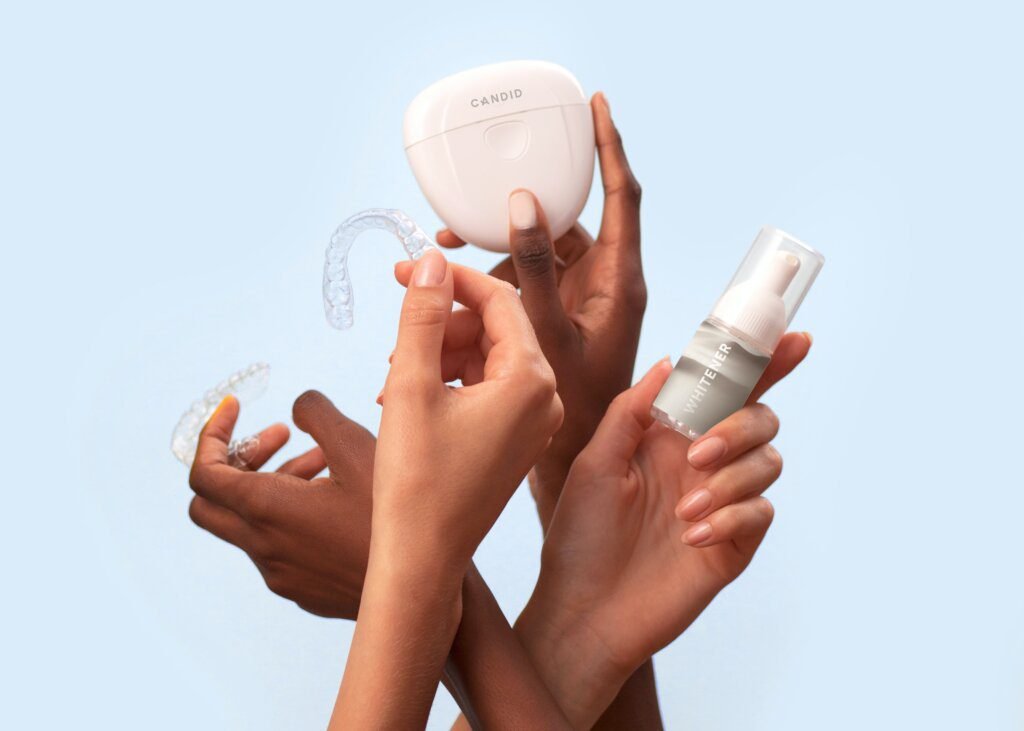Table of Contents
So, you’ve been hearing a lot about the importance of taking care of your furry friend’s dental health, but you’re worried about the cost? Well, fret not, because we have just the solution for you! In this article, we will be exploring affordable dog dental care options in Singapore and how you can ensure that your canine companion has a healthy and sparkling smile without breaking the bank. From affordable dental cleaning services to discount dental products, we’ve got your pup covered. Let’s get started!

Dental Care Importance
Taking care of your dog’s dental health is essential for their overall well-being. Just like humans, dogs can experience dental problems that can lead to pain, discomfort, and even more serious health issues. By prioritizing preventive dental care and addressing any dental problems promptly, you can ensure your furry friend stays happy and healthy throughout their life.
Preventive dental care
Prevention is always better than cure, and the same applies to your dog’s dental health. By implementing a regular preventive dental care routine, you can significantly reduce the chances of your dog developing dental problems. This includes brushing their teeth, providing dental treats, and scheduling regular dental check-ups.
Common dental problems in dogs
Dogs can suffer from a range of dental problems, just like humans. Some of the most common dental issues in dogs include periodontal disease, gingivitis, tooth decay, and broken or fractured teeth. These problems can cause pain, infection, and even lead to tooth loss if left untreated.
Impact of dental problems on a dog’s health
Untreated dental problems can have a significant impact on your dog’s overall health. Infections in the mouth can spread to other parts of the body, affecting vital organs like the heart, kidneys, and liver. Additionally, dental pain can cause your dog to lose interest in eating, leading to nutrition deficiencies. It’s crucial to address dental problems promptly to ensure your dog’s health and well-being.
Finding Affordable Dog Dental Care
While providing dental care for your dog is essential, it’s understandable that cost plays a role in your decision-making. Fortunately, there are ways to find affordable dog dental care without compromising on quality. Here are some tips to help you find the right options for your furry friend:
Researching dental clinics
Start by researching dental clinics in your area that specialize in pet dentistry. Look for clinics with experienced and qualified dental teams who are knowledgeable about dog dental health. Take notes on their services, facilities, and reviews to narrow down your options.
Comparing prices
Once you have a list of potential dental clinics, compare their prices for routine dental cleanings and treatments. Keep in mind that prices can vary depending on the clinic’s location, reputation, and the specific procedure required. Consider getting multiple quotes and ask about any additional fees that may apply.
Considering discounts and promotions
Some dental clinics may offer discounts or promotions for dental care services. Check their websites or call to inquire about any ongoing offers. It’s also worth asking if they provide any special discounts for regular clients or if they have any loyalty programs in place.
Reading reviews and testimonials
Before making your final decision, take the time to read reviews and testimonials from other dog owners who have used the dental clinics you are considering. Their feedback can give you valuable insights into the quality of care provided, the professionalism of the staff, and the overall experience at the clinic.

Dental Cleaning Services
When it comes to dental cleaning for your dog, there are two main methods: professional dental cleaning and anesthesia-free dental cleaning. Each method has its benefits and drawbacks, and it’s important to understand them before making a decision.
Professional dental cleaning
Professional dental cleaning is performed by a veterinarian or a veterinary dental specialist under general anesthesia. This allows for a thorough cleaning of your dog’s teeth, including the removal of plaque, tartar, and any other debris. General anesthesia ensures your dog remains still and calm during the procedure, allowing the dental team to work safely and effectively.
Anesthesia-free dental cleaning
Anesthesia-free dental cleaning, also known as non-anesthetic dental cleaning, is a less invasive alternative to professional dental cleaning. It involves cleaning the visible parts of your dog’s teeth using hand tools and dental instruments while your dog is awake. Although it may seem less risky, anesthesia-free cleaning may not address underlying dental problems or reach the areas below the gum line.
Benefits and drawbacks of each method
Professional dental cleaning provides a more thorough and comprehensive cleaning, addressing both visible and hidden dental issues. However, it requires your dog to be placed under general anesthesia, which can be a concern for some pet owners. Anesthesia-free dental cleaning, on the other hand, eliminates the risks associated with anesthesia but may not provide the same level of cleaning and may not identify or address underlying dental problems.
Discuss with your veterinarian about the best option for your dog based on their individual needs and dental health.
At-Home Dental Care
While regular professional dental cleanings are crucial, at-home dental care plays an equally important role in maintaining your dog’s dental health. By implementing a few simple practices, you can reduce the risk of dental problems and ensure your dog’s breath stays fresh and their teeth stay strong.
Brushing your dog’s teeth
Brushing your dog’s teeth is one of the most effective ways to remove plaque and prevent dental problems. Use a toothbrush and toothpaste specifically designed for dogs, as human toothpaste can be harmful to them. Get your dog accustomed to having their teeth brushed gradually, and make it a positive experience by rewarding them with treats and praise.
Choosing the right dental products
There is a wide range of dental products available for dogs, including toothbrushes, toothpaste, dental wipes, and dental sprays. Consult with your veterinarian to determine which products are best suited for your dog’s specific needs. Look for products that have the Veterinary Oral Health Council (VOHC) seal, as this indicates they have met specific standards for effectiveness.
Frequency of brushing
Ideally, you should aim to brush your dog’s teeth at least two to three times a week. However, even brushing once a week can make a significant difference in their dental health. Consistency is key, so try to establish a routine that works for both you and your dog. Be patient and persistent, and remember that every effort counts.
Other at-home dental care options
In addition to brushing, there are other at-home dental care options you can consider. Dental chews, toys, and treats specifically designed to promote dental health can help remove plaque and tartar while providing your dog with a tasty snack. However, it’s important to choose products that are appropriate for your dog’s size, age, and dental condition.

Preventive Measures
Apart from regular dental care, there are other preventive measures you can take to promote your dog’s dental health and maintain their bright smile. These measures not only help prevent dental problems but also contribute to your dog’s overall well-being.
Proper diet for dental health
Feeding your dog a nutritious diet that incorporates dental health benefits can make a significant difference in their oral health. Choose high-quality dog food that is formulated to promote dental health, such as kibble with a crunchy texture that helps reduce plaque buildup. Avoid feeding your dog excessive amounts of sugary or sticky treats, as these can contribute to dental problems.
Chew toys and dental treats
Chew toys and dental treats can be a great addition to your dog’s oral care routine. They provide a mechanical way of removing plaque and tartar while satisfying your dog’s natural urge to chew. Look for products that are specifically designed to promote dental health, and ensure they are appropriate for your dog’s size and chewing habits.
Regular dental check-ups
Just like humans, dogs benefit from regular dental check-ups. Schedule routine dental examinations with your veterinarian to identify any potential dental problems early on and address them promptly. Your veterinarian can perform a thorough dental examination, provide professional cleanings, and offer advice on maintaining your dog’s dental health at home.
Oral Health Warning Signs
Monitoring your dog’s oral health is essential in catching potential problems early. Dogs can’t tell us when something is wrong, so it’s important to look out for warning signs that may indicate dental problems. If you notice any of the following signs, it’s crucial to schedule a dental examination with your veterinarian:
Bad breath (halitosis)
Persistent bad breath is often a sign of dental problems in dogs. It can be caused by the buildup of bacteria, plaque, or infection in the mouth. If your dog’s breath is consistently unpleasant, it’s an indication that their dental health needs attention.
Discolored or dirty teeth
Healthy dog teeth should be clean and white. If you notice discoloration, staining, or dirt buildup on your dog’s teeth, it may be a sign of dental problems. Discolored teeth can indicate the presence of decay, infection, or tartar buildup.
Red or swollen gums
Healthy gums should be pink in color and free from swelling or inflammation. Red, swollen, or bleeding gums can be indicators of gum disease or other dental issues. If you notice any changes in your dog’s gum appearance, it’s important to have them evaluated by a veterinarian.
Excessive drooling or pawing at the mouth
Excessive drooling or pawing at the mouth can be signs of dental pain or discomfort. Dogs may try to alleviate their discomfort by pawing at their mouth or drooling excessively. If your dog displays these behaviors, it’s crucial to seek veterinary care to identify and address the underlying cause.
Common Dental Problems
Understanding the common dental problems that dogs can develop will help you recognize potential issues early on and take appropriate action. Here are some of the most prevalent dental problems seen in dogs:
Periodontal disease
Periodontal disease is a progressive condition that affects the gums and supporting structures of the teeth. It begins with the buildup of plaque and tartar, which leads to inflammation and infection. Without treatment, periodontal disease can result in tooth loss and affect your dog’s overall health.
Gingivitis
Gingivitis is an early stage of gum disease characterized by inflammation of the gums. It is often caused by poor dental hygiene and can lead to periodontal disease if left untreated. Symptoms include red, swollen gums, and bad breath.
Tooth decay and cavities
Although less common in dogs than in humans, tooth decay and cavities can still occur. These occur when bacteria attack and break down the enamel, leading to the formation of cavities. Regular dental check-ups and proper oral hygiene can help prevent tooth decay and cavities in dogs.
Broken or fractured teeth
Dogs can experience broken or fractured teeth due to trauma, chewing on hard objects, or untreated dental disease. Broken teeth can be painful and may require extraction or other dental treatments to prevent infection or further damage.
Early detection and treatment of these dental problems are crucial to prevent further complications and maintain your dog’s dental health.
Affordable Dental Care Tips
When it comes to affordable dog dental care, there are several tips and strategies you can consider to help manage the costs. Here are some suggestions:
Consider pet insurance
Pet insurance plans often cover dental care treatments and can help alleviate the financial burden of dental procedures. Research different pet insurance providers and policies to find one that suits your needs and budget. Calculate the premiums versus the potential cost of dental care to determine if pet insurance is a cost-effective option for you.
Take advantage of free or low-cost dental programs
Some animal welfare organizations, veterinary schools, and clinics offer free or low-cost dental care programs to help pet owners who may be facing financial constraints. Research such programs in your area and inquire about their eligibility requirements and available services.
Ask for payment plans or financing options
Many veterinary clinics understand that dental procedures can be costly, and they may offer payment plans or financing options to make the cost more manageable. Talk to the dental clinics you are considering and inquire about any available payment plans or financing options that can help you spread out the cost over time.
Remember, affordable dental care doesn’t mean compromising on quality. It’s important to find a balance between cost and the level of care your dog receives.
Choosing the Right Dental Clinic
Selecting the right dental clinic for your dog is crucial to ensure they receive the best possible care. Here are some factors to consider when choosing a dental clinic:
Location and accessibility
Consider the location of the dental clinic and its accessibility to you. Choose a clinic that is convenient for regular visits and emergencies. A closer clinic will save you time, money, and stress, especially during dental emergencies.
Qualifications and experience of the dental team
The qualifications and experience of the dental team are essential. Look for clinics with veterinarians or veterinary dental specialists who have specialized training in pet dentistry. Check their credentials and inquire about their experience in performing dental procedures on dogs.
Availability of specialized dental equipment
Dental clinics that invest in specialized dental equipment and technology can often provide more comprehensive dental care. Inquire about the dental equipment and tools the clinic uses, such as dental X-rays, ultrasonic scalers, and dental drills.
Quality of customer service
Customer service is an important aspect of any healthcare facility. Look for dental clinics that prioritize clear communication, compassion, and professionalism. Friendly and knowledgeable staff can make your dog’s dental experience more positive and comfortable.
Conclusion
Your dog’s dental health is a crucial aspect of their overall well-being. By prioritizing preventive dental care, addressing dental problems promptly, and implementing a regular dental care routine at home, you can ensure your furry friend maintains a healthy and happy smile. While the cost of dental care may be a concern, there are ways to find affordable options without compromising on quality. Research dental clinics, compare prices, read reviews, and consider discounts or promotions. Remember, regular dental care is key to keeping your dog’s dental health in check and promoting a long and fulfilling life together.



